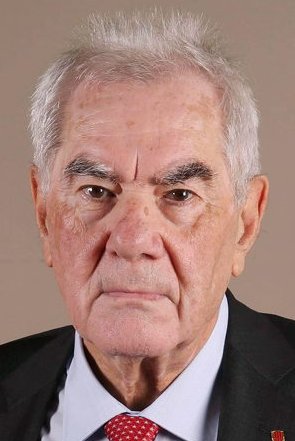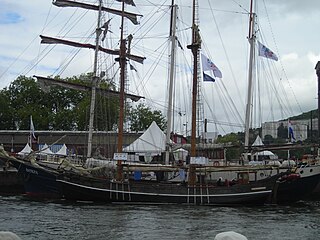
Barcelona is a city on the northeastern coast of Spain. It is the capital and largest city of the autonomous community of Catalonia, as well as the second-most populous municipality of Spain. With a population of 1.6 million within city limits, its urban area extends to numerous neighbouring municipalities within the province of Barcelona and is home to around 4.8 million people, making it the fifth most populous urban area in the European Union after Paris, the Ruhr area, Madrid and Milan. It is one of the largest metropolises on the Mediterranean Sea, located on the coast between the mouths of the rivers Llobregat and Besòs, bounded to the west by the Serra de Collserola mountain range.

Lleida is a city in the west of Catalonia. It is the capital and largest town in Segrià county, the Ponent region and the province of Lleida. Geographically, it is located in the Catalan Central Depression. It had 140,797 inhabitants as of 2022.

Josep Puig i Cadafalch was a Spanish Modernista architect who designed many significant buildings in Barcelona, and a politician who had a significant role in the development of Catalan institutions. He was the architect of the Casa Martí, which became a place of ideas, projects and social gatherings for such well-known Catalans as Santiago Rusiñol and Ramon Casas.

Lluís Domènech i Montaner was a Catalan architect who was very much involved in and influential for the Catalan Modernisme català, the Art Nouveau/Jugendstil movement. He was also a Catalan politician.

Joan Clos i Matheu, GCIH is a Spanish politician who was mayor of Barcelona, Spain from September 1997 to September 2006. He took over from Pasqual Maragall in 1997. In 1999 he was elected to a four-year term, and was then re-elected in the municipal elections of 25 May 2003. In September 2006, he left Barcelona Town Hall, after nine years of office, as he was appointed Minister of Industry, Tourism and Trade by Spanish Prime Minister José Luis Rodríguez Zapatero. After a stint as the Spanish Ambassador in Turkey and Azerbaijan, in 2010 he was appointed as executive director of the United Nations Human Settlements Programme, (UN-HABITAT), and Under Secretary General of the United Nations. Joan Clos is also president of the Spanish Chapter of The International Real Estate Federation (FIABCI).

Cardona is a town in the Spanish region of Catalonia, in the province of Barcelona; about 90 km (56 mi) northwest of the city of Barcelona, on a hill almost surrounded by the river Cardener, a branch of the Llobregat. To the east of the town, the river has been diverted through a tunnel has been dug through a spur, leaving a loop of dry river bed near the saltmine.
Municipal elections in Barcelona are held every four years to elect the city council. The mayor is elected indirectly by the councillors on the first plenary session of the term.

El Papiol is a municipality in the comarca of the Baix Llobregat in Catalonia, Spain. It is situated on the left bank of the Llobregat river, on the A-7 autopista from Valencia to La Jonquera and the C-1413 road from Sabadell to Molins de Rei. At West it borders on Castellbisbal and Pallejà, at North on Valldoreix and at East on Molins de Rei. It is served by the Renfe railway line R4 from Barcelona to Martorell, Vilafranca del Penedès and Sant Vicenç de Calders, which is connected to the village center by a minibus service. It is also served by a bus service (L67) and a night bus service (N51) from Barcelona to Esparreguera.

Catalonia is divided into 947 municipalities.

The Monastery of Pedralbes is a Gothic monastery in Barcelona, Catalonia, Spain. It is now a museum, housing permanent exhibitions on its own art and legacy as well as third-party special exhibitions from time to time. The Chapel of St. Michael was restored and re-opened in 2018.
Antoni Vila Arrufat (1894–1989) was a Spanish engraver from Sabadell in Catalonia.

The 1979 Barcelona City Council election, also the 1979 Barcelona municipal election, was held on Tuesday, 3 April 1979, to elect the 1st City Council of the municipality of Barcelona. All 43 seats in the City Council were up for election. The election was held simultaneously with local elections all throughout Spain.

The 1987 Barcelona City Council election, also the 1987 Barcelona municipal election, was held on Wednesday, 10 June 1987, to elect the 3rd City Council of the municipality of Barcelona. All 43 seats in the City Council were up for election. The election was held simultaneously with regional elections in thirteen autonomous communities and local elections all throughout Spain, as well as the 1987 European Parliament election.

The 2003 Barcelona City Council election, also the 2003 Barcelona municipal election, was held on Sunday, 25 May 2003, to elect the 7th City Council of the municipality of Barcelona. All 41 seats in the City Council were up for election. The election was held simultaneously with regional elections in thirteen autonomous communities and local elections all throughout Spain.

The 2019 Barcelona City Council election, also the 2019 Barcelona municipal election, was held on Sunday, 26 May 2019, to elect the 11th City Council of the municipality of Barcelona. All 41 seats in the City Council were up for election. The election was held simultaneously with regional elections in twelve autonomous communities and local elections all throughout Spain, as well as the 2019 European Parliament election in Spain.

Jaume Collboni Cuadrado is a Spanish politician, lawyer by profession and civil servant of the local administration. He became the Mayor of Barcelona on 17 June 2023.
An ayuntamiento is the body charged with the government and administration of the municipalities in Spain not bound to the regime of concejo abierto. The ayuntamiento is one of the bodies charged with Local government in Spain.

The 1931 Barcelona City Council election was held on Sunday, 12 April 1931, to elect the Barcelona City Council, the unicameral local legislature of the municipality of Barcelona. This was the first election under the Dictatorship of Primo de Rivera. At stake were all 50 seats in the City Council, determining the Mayor of Barcelona. The election was perceived as a plebiscite on Spanish Monarchy. The results lead to the Second Spanish Republic.

Far Barcelona is a two-masted schooner, of Norwegian origin, rigged with a gaff sail, built in the community of Kvinherred, Norway, in 1874.


















